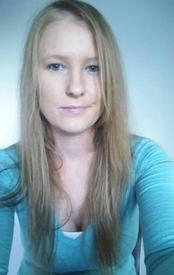Sleeping problems?

Jessastar
Posts: 234 Member
I'm wondering if I'm starting to have insomnia..
I usually go to sleep around 9-10PM.. but I end up just staring at the ceiling ti'll about 3AM or 5AM then sleeping for two hours and waking up.. I don't know what the problem is I usually had no trouble sleeping.
I eat right, and I exercise every other day for 45 minutes to an hour (or everyday, depending on how much time I have to do it) but when it comes to my bedtime, I just can't for the life of me go to sleep. I workout around 12pm-5pm (not for 5 hours, but I do it within that time frame)
I eat my fruits and vegetables and protein (I rarely log it in here, but I have a separate food diary)
I do try to keep my eyes closed, but I can't. I usually have them opened.
I was diagnosed with Clinical Depression and Anxiety when I was 14, but I haven't had an anxiety attack since I was 17 (I'm 19) And I only feel depression every now-and-again because I've been working out so it's been majorly helping since it releases endorphin's.
I let all my stress out when I workout since I do boxing and speed walk or dance.
What do you think?
Is there anything I should try?
I don't really believe in pills.. but if it comes down to the last option I have I guess I have no choice.
I usually go to sleep around 9-10PM.. but I end up just staring at the ceiling ti'll about 3AM or 5AM then sleeping for two hours and waking up.. I don't know what the problem is I usually had no trouble sleeping.
I eat right, and I exercise every other day for 45 minutes to an hour (or everyday, depending on how much time I have to do it) but when it comes to my bedtime, I just can't for the life of me go to sleep. I workout around 12pm-5pm (not for 5 hours, but I do it within that time frame)
I eat my fruits and vegetables and protein (I rarely log it in here, but I have a separate food diary)
I do try to keep my eyes closed, but I can't. I usually have them opened.
I was diagnosed with Clinical Depression and Anxiety when I was 14, but I haven't had an anxiety attack since I was 17 (I'm 19) And I only feel depression every now-and-again because I've been working out so it's been majorly helping since it releases endorphin's.
I let all my stress out when I workout since I do boxing and speed walk or dance.
What do you think?
Is there anything I should try?
I don't really believe in pills.. but if it comes down to the last option I have I guess I have no choice.
0
Replies
-
up0
-
bump0
-
no one can help?0
-
Ahh been there... If you want to avoid meds such as lexapro I suggest going to a vitamin and herb shop and picking up melatonin. See if that helps you.0
-
Was really hoping you had an answer here since I have the same problem. Caffeine?0
-
Hiya sorry to hear about your sleeping problems, I've had a sleeping disorder for years now and it is a complete and utter pain. Unfortunately what works for one person may not work for another, but here are a few things I do:
I don't go to bed too early I'll only lie there and fret. I usually head to bed around 11:00 and then read for an hour (with a reading light that I don't have to get out of bed to turn off). I can usually get to sleep around midnight.
I use noise cancelling ear plugs and an eye mask to remove external noises and lights.
Warm bath going to bed, no coffee nor caffeine of any kind after 3:00 pm
No heavy meals going to bed.
A piece of apple and cheese going to bed - the protein and the fruit helps restless legs because of protein and lactose in cheese
Don't use heavy blankets, cover yourself lightly.
If you can't' sleep - get up, lying there fretting will only make it worse.
Don't exercise too close to bedtime
I had to use a pill for a while that didn't make me fall asleep but helped me stay asleep once there.
Good luck, hope one of these helps somewhat. Cheers,0 -
I have not been sleeping the best for the past 6 months and I have also heard of good things about Melatonin.0
-
I had almost this exact same problem during the winter. In total, I'd get 4-5 hours of sleep a night, but it was so frustrating waking up around 1 or 2 and being wide awake till around 5. I can't remember the name of the technique, but Dr. Google informed me that if 4 or 5 hours of sleep is what my body wanted, that's what it was going to get, but all at once. I stayed up till midnight or 1 am (which is normally difficult fore, but even moreso since I was exhausted) and then get up at 5 or 6. After a couple days of that, I started sleeping a little better. It was like I needed a bit of a reset.
Hope you get some relief soon, I know how frustrating it can be. 0
0 -
Hi there! Just my 2 cents (as a neuroscientist; sleep isn't really my area of specialty, but I do teach some stuff in one of my classes related to your problems).
First off, sleep problems and anxiety/depression are usually linked. Many of the genes that predispose people to anxiety or depression also disrupt sleep cycles, so it's entirely possible that either (a) your sleep problems are actually (at least partly) responsible for your anxiety and depression or (b) that your sleep problems and anxiety/depression are related health issues.
Best news is that exercise is one of the most effective treatments for mild depression and anxiety, so you're on the right track there. As far as the sleep problems, though, you should keep a detailed diary for at least two weeks, including what you eat, when you work out (and workout intensity), whether anything in your life is stressing you out, and how long it takes you to fall asleep. This should help you pinpoint what is causing your insomnia (because if you're tired during the day, then what you're describing is very likely insomnia). Once you've kept a diary for a couple of weeks, look to see if there's a pattern - for example, I have a friend who is intensely sensitive to caffeine. If she eats a piece of chocolate or drinks hot cocoa after like 3pm it keeps her awake all night, so she has to avoid chocolate and buy cocoa that doesn't have caffeine in it. If there are one or two particular things that seem to be keeping you up, you can address those and see if you start sleeping better.
Also, if you are lying awake in bed, DON'T STAY THERE. Get up, go to another room, and read a book or do some other quiet activity. Stay away from computer and phone screens, because the bright light can signal to your brain that it's daytime and make you feel even more awake. The light from your computer or phone screen is usually in the blue-white family, which is a lot like natural daylight; if you're awake late at night try to use lights that are more yellow-toned - that includes your light bulbs in reading lamps - try to stick to "soft white"-type bulbs and not "daylight"-type bulbs. Once you've been away from bed for an hour (or more if you need it) go back to bed and try to fall asleep again. I've found that it's actually easier to fall asleep if I DON'T try to lay there with my eyes closed, and instead try to challenge myself to keep my eyes open and stare at the ceiling. Eventually my eyes just get tired and I drift off.
Finally, a note on melatonin. It CAN help people sleep, and it's great for recovering from jet lag, but it really shouldn't be used on a regular basis. Despite being sold OTC as a nutritional supplement, melatonin is a HORMONE that your brain makes to regulate your sleep cycle. If you are taking an artificial melatonin supplement for too long, it may screw up your brain's normal melatonin production and cause nasty side effects that impact your sleep cycle and your mood (it is thought that Seasonal Affective Disorder, aka SAD or seasonal depression, is caused by having too much melatonin in your brain; I would imagine somebody who is already depressed probably shouldn't mess around with this stuff...or at least don't plan to take it for more than a few days at a time).0 -
you can try melatonin, it is a supplement, something that ur body should be making on its own at night time to help you fall asleep, but sometimes it doesn't. it is better than like a sleeping pill and wont leave you tired the next day0
-
I SUFFER FROM SLEEP APNEA AND HAVE A CPAP MACHINE (WHICH IS A PAIN N THE REAR)..BUT I CAN TOTALLY RELATE..MAYBE U NEED TO GET TESTED FOR THIS IT WOULDN'T SURPRISE ME IF U HAVE IT..I SLEEP 45MINUTES IF THAT LONG0
-
Hi there! Just my 2 cents (as a neuroscientist; sleep isn't really my area of specialty, but I do teach some stuff in one of my classes related to your problems).
First off, sleep problems and anxiety/depression are usually linked. Many of the genes that predispose people to anxiety or depression also disrupt sleep cycles, so it's entirely possible that either (a) your sleep problems are actually (at least partly) responsible for your anxiety and depression or (b) that your sleep problems and anxiety/depression are related health issues.
Best news is that exercise is one of the most effective treatments for mild depression and anxiety, so you're on the right track there. As far as the sleep problems, though, you should keep a detailed diary for at least two weeks, including what you eat, when you work out (and workout intensity), whether anything in your life is stressing you out, and how long it takes you to fall asleep. This should help you pinpoint what is causing your insomnia (because if you're tired during the day, then what you're describing is very likely insomnia). Once you've kept a diary for a couple of weeks, look to see if there's a pattern - for example, I have a friend who is intensely sensitive to caffeine. If she eats a piece of chocolate or drinks hot cocoa after like 3pm it keeps her awake all night, so she has to avoid chocolate and buy cocoa that doesn't have caffeine in it. If there are one or two particular things that seem to be keeping you up, you can address those and see if you start sleeping better.
Also, if you are lying awake in bed, DON'T STAY THERE. Get up, go to another room, and read a book or do some other quiet activity. Stay away from computer and phone screens, because the bright light can signal to your brain that it's daytime and make you feel even more awake. The light from your computer or phone screen is usually in the blue-white family, which is a lot like natural daylight; if you're awake late at night try to use lights that are more yellow-toned - that includes your light bulbs in reading lamps - try to stick to "soft white"-type bulbs and not "daylight"-type bulbs. Once you've been away from bed for an hour (or more if you need it) go back to bed and try to fall asleep again. I've found that it's actually easier to fall asleep if I DON'T try to lay there with my eyes closed, and instead try to challenge myself to keep my eyes open and stare at the ceiling. Eventually my eyes just get tired and I drift off.
Finally, a note on melatonin. It CAN help people sleep, and it's great for recovering from jet lag, but it really shouldn't be used on a regular basis. Despite being sold OTC as a nutritional supplement, melatonin is a HORMONE that your brain makes to regulate your sleep cycle. If you are taking an artificial melatonin supplement for too long, it may screw up your brain's normal melatonin production and cause nasty side effects that impact your sleep cycle and your mood (it is thought that Seasonal Affective Disorder, aka SAD or seasonal depression, is caused by having too much melatonin in your brain; I would imagine somebody who is already depressed probably shouldn't mess around with this stuff...or at least don't plan to take it for more than a few days at a time).
Thanks so much, very informative. I will keep a journal now to see my progress/downfalls and track it. And thanks for the insight about Melatonin.. I'm not really a much believer in pills so I doubt I would have tried it anyway. This has helped me a lot though and I will definitely give everything you suggested a try. I had a few mistakes on going on my phone or staying in bed or on the computer when I can't fall asleep but I had no idea it would do that to my head, so thank you for suggesting to not go on it. (:0 -
Thanks so much, very informative. I will keep a journal now to see my progress/downfalls and track it. And thanks for the insight about Melatonin.. I'm not really a much believer in pills so I doubt I would have tried it anyway. This has helped me a lot though and I will definitely give everything you suggested a try. I had a few mistakes on going on my phone or staying in bed or on the computer when I can't fall asleep but I had no idea it would do that to my head, so thank you for suggesting to not go on it. (:
No problem! I think it's pretty automatic for people to check the computer or phone when we can't sleep (honestly I do it pretty often, even though I know I shouldn't), but it's definitely worth trying to avoid these things late at night and see if that helps you sleep better. I just think the most important thing to keep in mind is that there are a LOT of possible causes for insomnia, so it's best to try to understand what, specifically, is causing your sleep problems. No single answer is going to work for everyone, and I wholeheartedly agree with your stand on pills - I try to avoid medications (even supposedly "safe" ones like melatonin) unless they are actually the best solution - there is no point in taking sleeping pills or supplements if they're just going to cover up the problem instead of fixing it.0
This discussion has been closed.
Categories
- All Categories
- 1.4M Health, Wellness and Goals
- 398.2K Introduce Yourself
- 44.7K Getting Started
- 261K Health and Weight Loss
- 176.4K Food and Nutrition
- 47.7K Recipes
- 233K Fitness and Exercise
- 462 Sleep, Mindfulness and Overall Wellness
- 6.5K Goal: Maintaining Weight
- 8.7K Goal: Gaining Weight and Body Building
- 153.5K Motivation and Support
- 8.4K Challenges
- 1.4K Debate Club
- 96.5K Chit-Chat
- 2.6K Fun and Games
- 4.8K MyFitnessPal Information
- 12 News and Announcements
- 21 MyFitnessPal Academy
- 1.6K Feature Suggestions and Ideas
- 3.2K MyFitnessPal Tech Support Questions








